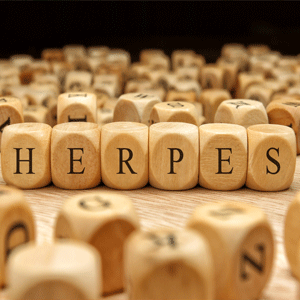
An inflammatory protein may play a part against the spread of sexually transmitted genital herpes virus in the nervous system, a new study says.
The findings could help lead to improved treatment of herpes, according to the researchers at the University of Arizona College of Medicine-Phoenix.
Virus remains in hiding
The protein, called IL-36y, was identified 20 years ago. Since then, research has shown that it plays an important role in chronic inflammatory diseases, but only recently have investigators started to examine its role in infectious diseases such as herpes.
After initial vaginal infection with genital herpes simplex virus 2 (HSV-2), the virus spreads through a woman's nervous system and goes into "hiding". It remains in hiding for a lifetime and periodically reactivates and causes lesions, the researchers explained.
"We were the first group to detect IL-36y in the female reproductive tract and have been extending this work to evaluate the extent that this molecule can protect against, or contribute to, genital infection," study senior author Melissa Herbst-Kralovetz said in a university news release. She's an associate professor of basic medical sciences.
Study leader Jameson Gardner said the researchers "really were excited to see that after intravaginal HSV-2 infection, the virus was able to spread systemically throughout the nervous system and to the brain in those lacking IL-36y".
He said the control group, which had the gene intact, was significantly more protected against HSV-2 spread in the nervous system.
Gardner is a graduate research student in the lab of Herbst-Kralovetz.
Development of novel therapeutics
"We've shown that IL-36y appears to function in a previously uncharacterised manner to protect against virus neuroinvasion [an infection that affects the nervous system]," Gardner said in the release.
However, it's not yet known how IL-36y does this, the study authors said.
Despite the use of antiviral medications to treat genital herpes, more than 260 million women worldwide have the lifelong infection that can be transmitted to others, according to the authors.
Researchers have worked for decades to develop a vaccine to protect against genital herpes, but none has succeeded so far, Gardner said.
"Our understanding of how IL-36y functions can aid in the development of novel therapeutics to protect against – and hopefully decrease – the burden of [sexually transmitted infections] around the world," he added.
The findings are in the October issue of the Journal of Immunology.
Image credit: iStock




 Publications
Publications
 Partners
Partners














